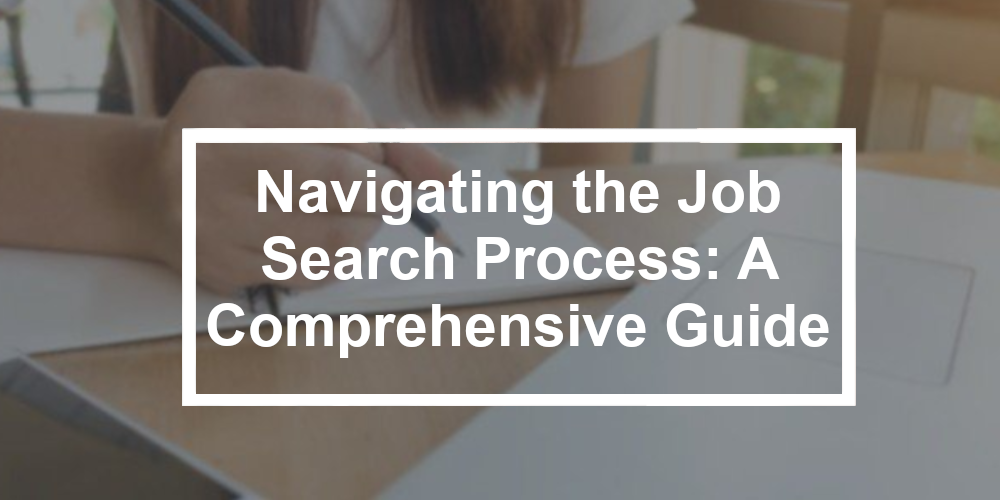
Entering the job market can seem like an insurmountable challenge, particularly in the current climate. Traversing endless advertisements, polishing up your interviews, negotiating for pay and benefits, and assessing employment proposals can all become overwhelming. However, with the proper strategy and tools at your disposal, finding the best job can be a gratifying experience. This comprehensive guide outlines ten ways you can help yourself during the job-seeking process and increase your chances of achieving success irrespective of whether you just graduated, are a seasoned professional or considering a career shift.
Understanding the current job market and identifying opportunities
You’ve heard it said before: knowledge is power. In the hunt for employment that fits with your expertise and qualifications, research is key. Staying informed about trends both within your field and across industries can be beneficial in identifying job openings that might otherwise slip through the cracks. Identifying opportunities in the current job market necessitates comprehending its dynamics. In other words, acquiring knowledge about current job trends, industry growth, and companies that are hiring plays a pivotal role in elevating your ability to spot openings that suit your skills and expertise.
Creating a job search strategy and timeline
It’s also essential to take a calculated approach by developing a job search timeline with milestones along the way; this will help hold you stay accountable as well as provide structure. Staying focused while delving into the world of job-searching is challenging but developing a methodical approach can improve your chances of securing employment. Articulating specific targets within an allotted timeframe is critical to remain on track. Consider exploring various avenues geared towards skills obtained and personal preference when examining how best to seek job opportunities.
Building a strong professional network and leveraging referrals
Networking plays a critical role when it comes to accessing job opportunities in today’s workforce. Branch out by connecting with past colleagues, attending industry events or becoming involved with niche professional organisations. Utilising referrals can be an excellent way of making new career connections as well; try reaching out to trusted acquaintances for leads on potential employers or key contacts.
Crafting an effective resume and cover letter
When presenting yourself professionally through resumes and cover letters; make sure that they are tailored specifically towards matching the criteria set forth by hiring managers or recruiters. You need a top-notch resume and cover letter combo in order to catch an employer’s eye. Instead of relying on canned language or a standard template, customise each document in accordance with the particular job description. Showcasing achievements, as well as skillsets, will also help set yourself apart from other applicants vying for attention.
Developing a personal brand and online presence
In the competitive job market of today, differentiating yourself with a robust personal brand and established online presence can go a long way. By creating a professional platform showcasing your skills and experience, and engaging with peers in your industry, you stand out from other job candidates.
Preparing for interviews and common interview questions
You’ve likely heard the phrase ‘practice makes perfect’ before – but when it comes to preparing for interviews, it couldn’t be truer! Before heading along to any interviews, take some time to research both the company itself and your interviewer specifically. This way, you can create strong responses catered specifically towards what they’re looking for or hoping to learn about during your time together. Additionally, practising answering common interview questions beforehand has been found beneficial for many hopeful job seekers – getting ahead of those potential curveballs could help you secure that dream position!
Negotiating salary and benefits
It is essential to do extensive research on industry standards, determine your professional value, and firmly negotiate based on the experience and skillset you bring to the table. After assessing yourself – determining what value proposition lies within – negotiating pay effectively becomes more comfortable because it will be evident how much value you bring with each accomplishment or milestone achieved while working under contract or employability status agreements – all prior work experiences count towards future potential earnings.
Evaluating job offers and making the right decision
While it can be daunting to contemplate different job offers presented to you, it’s crucial to examine various aspects such as organisational culture, career advancement opportunities, and compensation. Carefully weighing the pros and cons of each offer will help guide your decision-making process by prioritising what matters most.
Following up after interviews and staying organised during the process
After interviews with potential employers, following up is critical in showing continued interest in a role. Keeping a record of job applications, interview dates, and deadlines is crucial for staying on track during your job search. Maintaining communication with prospective employers exhibits a sustained passion for the position.
Dealing with rejection and staying motivated during the job search.
Facing rejection can be discouraging. To remain positive, it’s essential to remember your objectives and use rejections as opportunities to learn. Staying motivated means concentrating on what you excel at while acknowledging the progress made so far in the quest for employment. Navigating the job search journey will present obstacles that require perseverance.
Career progression comes down largely to preparation and strategy – both qualities which are heavily emphasised by following a thorough guide such as this one when searching for employment opportunities. It’s important not only to take note of every step mentioned but put them into action by regularly scouring our site for suitable jobs and uploading an eye-catching CV to our website that makes employers take notice. And don’t forget amidst all these steps there are plenty of avenues besides direct applications including Hunterskill Recruitment or attending workplace events where introductions could lead to exciting career opportunities.